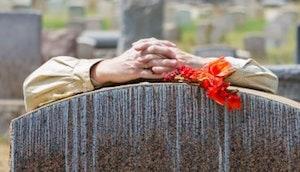The Nursing Home Law Center is committed to providing the legal resources necessary to hold negligent facilities accountable.
Fremont Nursing Home Abuse Lawyer

Licensed in California
Nursing home abuse is a serious issue that affects some of the most vulnerable members of our community: the elderly. Families trust nursing homes to provide necessary care and protection, but sadly, abuse and neglect occur more often than many realize.
Injured victims may suffer from bodily injury, psychological abuse, and financial exploitation. When this happens, it’s crucial for victims and their families to seek legal representation from an experienced Fremont nursing home abuse lawyer.
Why Hire Nursing Home Law Center
At Nursing Home Law Center, we are dedicated to obtaining justice and fair compensation for victims of nursing home abuse. Our skilled legal team has a strong track record of managing these cases with care and securing significant settlements and verdicts.
We carry out comprehensive investigations to ensure every aspect of the abuse is addressed, including medical costs, emotional distress, and other related damages. With our deep knowledge of nursing home abuse claims, we handle the legal process efficiently and fight relentlessly to defend your rights.
Types of Cases Handled by Our Fremont Nursing Home Abuse Lawyers
Nursing home abuse occurs when residents suffer harm due to the intentional actions or neglect of staff members or others in the facility. Our Fremont nursing home abuse attorneys handle a wide range of cases, including:
- Physical abuse
- Mental and emotional abuse
- Sexual abuse
- Medical malpractice
- Negligence
- Financial abuse
- Wrongful death
Understanding Your Legal Rights

Nursing home residents are protected by both federal and state laws.
The Nursing Home Reform Act of 1987 ensures that residents receive quality care and are free from abuse and neglect. California law also provides protections, including specific legal duties that nursing homes must uphold.
These laws guarantee residents the right to:
- Safe and adequate living conditions
- Protection from neglect and abuse
- Access to necessary medical treatment
Eligibility to File an Elder Abuse Claim
Multiple parties can file a nursing home abuse claim, including the victim, their family members, or a legal guardian. In the case of a wrongful death, the deceased resident’s estate may also file a claim.
Liability in Nursing Home Abuse and Neglect Cases
Various parties may be held responsible for nursing home abuse, including:
- Nursing home staff
- Facility management
- Corporate owners
- Third-party contractors
- Medical providers
How Our Fremont Nursing Home Abuse Attorneys Can Help
Our legal team has extensive experience handling nursing home abuse cases in Fremont. We are dedicated to seeking justice for victims and their families. Our services include:
- Free Consultation: We offer a free consultation to review your case and discuss your legal options.
- Case Investigation: Our attorneys will thoroughly investigate the circumstances of the abuse, gathering evidence such as medical records and witness statements.
- Filing the Claim: We handle all aspects of filing a personal injury claim to protect your loved one’s rights.
- Settlement Negotiation: We will negotiate with the responsible parties to secure fair compensation for injury victims.
- Trial if Needed: If a settlement cannot be reached, we will take your case to court and fight for the compensation you deserve.
Common Signs of Nursing Home Abuse
In Fremont, there are 127 Medicare-certified nursing homes, with 20 of them (16%) having an overall rating of below or much below average. 43 facilities (34%) fall short in health inspections, and 45 nursing homes (35%) have inadequate staffing. Specifically, seven facilities (6%) are rated poorly in quality measures. [1]
The worst-rated nursing homes in Fremont include:
| Atherton Park Post-Acute | Bay View Rehabilitation Hospital, LLC |
| Cupertino Healthcare & Wellness Center | Good Samaritan Healthcare Center – Hayward |
| Herman Health Care Center | Lake Park Healthcare Center |
| Millbrae Care Center | Princeton Manor Healthcare Center, LLC |
| San Mateo Medical Center D/P Snf | Santa Clara Post Acute |
| Skyline Healthcare Center – San Jose |
Recognizing the signs of abusive behavior in a nursing home is crucial to protecting your loved one. Some common indicators include:
- Unexplained injuries like bruises or fractures
- Sudden changes in behavior, such as fear or withdrawal
- Poor hygiene or bed sores
- Unexplained financial transactions or missing belongings
What to Do If You Suspect Nursing Home Abuse
If you believe your loved one is a victim of elder abuse, follow these steps:
- Call 911 if your loved one is in immediate danger.
- Report the abuse to the nursing home administrator or management.
- File a complaint with your local Ombudsman’s office, which advocates for residents’ rights.
- Contact a Fremont nursing home abuse lawyer to seek legal assistance.
Damages You Can Recover Through a Nursing Home Abuse Claim
Victims of nursing home abuse may be entitled to various types of damages, which are categorized into three main areas:
- Economic Damages: These are the measurable financial losses incurred due to abuse or neglect.
- Noneconomic Damages: These damages relate to the emotional and psychological impact of the abuse, which are not easily quantifiable but deeply affect the victim’s quality of life.
- Punitive Damages: Unlike economic and noneconomic damages, punitive damages are not meant to compensate the victim directly. Instead, they are intended to punish the wrongdoer for particularly egregious or malicious behavior and deter similar misconduct.
The Cost of Hiring a Fremont Nursing Home Abuse Attorney
At Nursing Home Law Center, we work on a contingency fee basis, meaning you don’t pay any legal fees unless we win your case and recover compensation on your behalf.
You Have Limited Time to Take Legal Action in Fremont
California law imposes a statute of limitations on nursing home abuse cases, meaning you have a limited time to file a claim.
Fremont follows California’s statutes of limitations, giving residents two years to file personal injury cases and wrongful death claims, one to three years for medical malpractice, and two to four years for elder abuse cases, depending on the type. It’s important to act quickly to preserve your right to seek compensation.
Contact a Fremont Nursing Home Abuse Attorney Today!
If your loved one has suffered from nursing home abuse, our experienced California nursing home abuse attorneys are here to help. We will fight for the justice and compensation your family deserves.
Call us at (800) 926-7565, or fill out our contact form.
References: [1] Medicare

